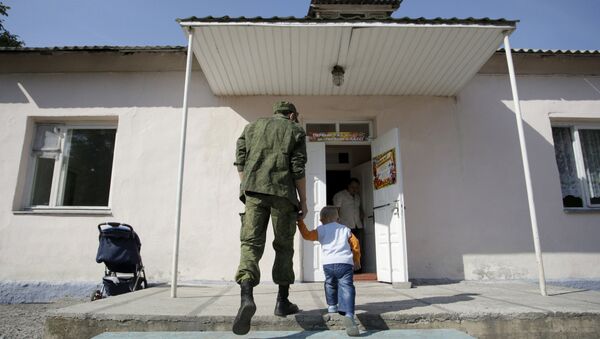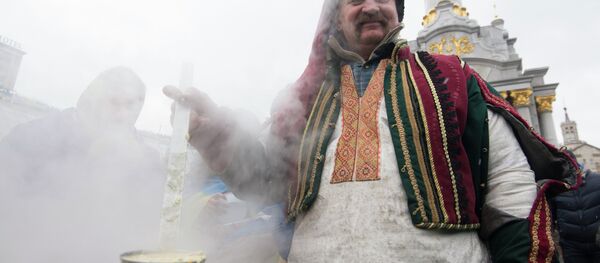Speaking at a press conference in Kiev on Monday, Zhebrivskyi declared that the "gradual, soft, measured Ukrainianization of schools and kindergartens is under way. There are cities, Druzhkivka for instance [a town of 64,000 in northern Donetsk] where 100% of schools are Ukrainian. Today we have begun a process of partnering schools in the Donetsk Region with schools in the central and western regions."
The governor noted that an education administrator from Lviv, western Ukraine is set to be placed in charge of Ukraine-controlled Donetsk's department of education, pending Education Minister Serhiy Kvit's approval.
Moreover, Zhebrivskyi said that authorities are in the process of repairing a TV tower near Sloviansk, northern Donetsk, destroyed in the course of the fighting taking place there in 2014. In his words, the tower will give Ukrainian authorities the capability to transmit Ukrainian television onto the territories of the self-declared Donetsk and Lugansk People's Republics. This will include, in his words, an unspecified program of 'distance learning' for children living in territories outside Kiev's control.
The governor said that "the first set of tasks will be to carry out a self-identification of the residents of Donetsk…We believe that their self-identification as Ukrainians will serve as the core from which the rest of our initiatives will proceed." He added that his office's "key task" will be to ensure "the formation of a new Ukrainian elite from among Donetsk residents. This is where we will start, and this is what we are working on. We have started by working with children and with their schools."
Last month, in an interview for Ukraine's Channel 5, Zhebrivskyi suggested that following the "liberation" of the "temporarily occupied territories in Donbass," a two-year "transitional stage" would be necessary for Kiev-aligned authorities to restore order.
Critics of the governor's initiative have suggested that his office's efforts in education aim to codify the 'Ukrainianization' and 'derussification' initiatives proposed by authorities in Kiev, most brutally by Right Sector leader and Rada MP Dmitri Yarosh, who declared earlier this year that the Donbass's "affectionate Ukrainianization" can begin only when "unruly residents" are "dealt with" in "a very harsh manner," including "deportation, the deprivation of civil rights, and so on."
Last November, President Petro Poroshenko ordered an economic blockade of Donbass and the withdrawal of all state-funded health, educational and social assistance for residents of territories outside Kiev's control.



